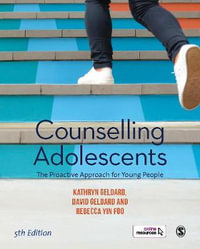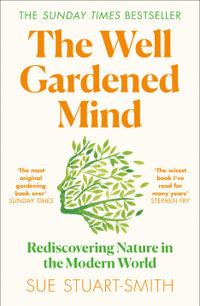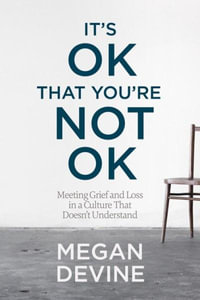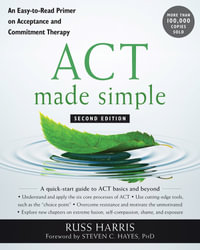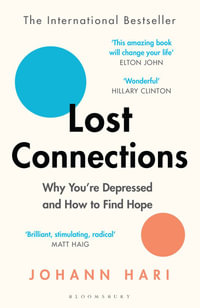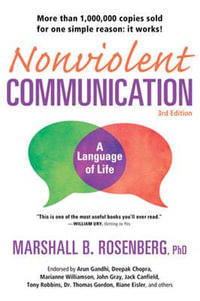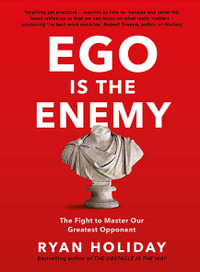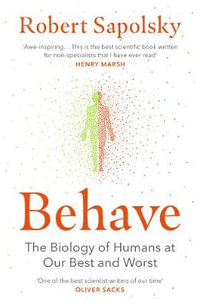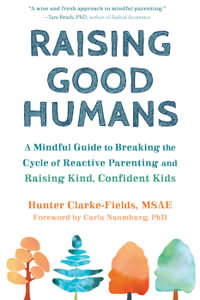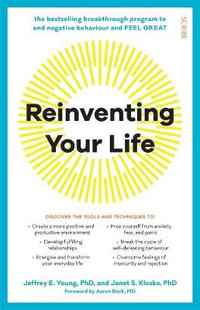'This book represents a seismic shift in thinking about brain injury and its consequences. Ownsworth explores changes to self-identity, from historical, philosophical and contemporary social neuroscience theory through to practical issues in assessment and rehabilitation. Eminently readable, this erudite and clinically relevant work will be valued by all interested in brain injury'. - Skye McDonald, School of Psychology, University of NSW, Australia
'This volume provides the most comprehensive and current discussion of self-identity available. Dr. Ownsworth examines the topic from its philosophical, psychological, neuropsychological and social underpinnings through the impact of brain injury to evidence-based methods to redevelop a healthy sense of self. The effects of brain injury on self-identity are explored from a variety of perspectives: developmental issues, challenges in measurement, and implications for psychotherapeutic and rehabilitative treatment. Individual, group, and social interventions to rebuild self-identity after brain injury are detailed. Dr. Ownsworth not only catalogues but integrates the universe of methods for the evaluation and treatment of a damaged sense of self to suggest a comprehensive approach. This book will be invaluable to those working with individuals who are disabled by damaged self-identity after brain injury. It will also be of significant interest to other researchers, scholars, and clinicians who are grappling with understanding the development and restoration of a healthy self-concept'. - James F. Malec, Indiana University School of Medicine and Rehabilitation Hospital of Indiana, USA
'What it means to be who we are as human beings, and how this is affected after neurological injury or illness, encapsulates much of the personal tragedy of acquired brain injury. With 'Self-Identity after Brain Injury' Tamara Ownsworth has succeeded in producing a tour de force everyone involved in the post-acute psychological care and rehabilitation of persons with acquired brain, should read. However, this extremely well written book is so much more than an essential practical resource for clinicians. 'Self-Identity after Brain Injury' represents such a formidable integration of the theoretical underpinnings, clinical techniques, case illustrations and the state of current research on identity and brain injury, that it is undoubtedly also essential reading for academics and researchers in the field.' - Rudi Coetzer, Consultant Neuropsychologist, Betsi Cadwaladr University Health Board, NHS Wales
'This book represents a seismic shift in thinking about brain injury and its consequences. Ownsworth explores changes to self-identity from historical, philosophical and contemporary social neuroscience theory through to practical issues in assessment and rehabilitation. Eminently readable, this erudite and clinically relevant work will be valued by all interested in brain injury'. - Skye McDonald, School of Psychology, University of NSW, Australia
'This volume provides the most comprehensive and current discussion of self-identity available. Dr. Ownsworth examines the topic from its philosophical, psychological, neuropsychological and social underpinnings through the impact of brain injury to evidence-based methods to redevelop a healthy sense of self. The effects of brain injury on self-identity are explored from a variety of perspectives: developmental issues, challenges in measurement, and implications for psychotherapeutic and rehabilitative treatment. Individual, group, and social interventions to rebuild self-identity after brain injury are detailed. Dr. Ownsworth not only catalogues but integrates the universe of methods for the evaluation and treatment of a damaged sense of self to suggest a comprehensive approach. This book will be invaluable to those working with individuals who are disabled by damaged self-identity after brain injury. It will also be of significant interest to other researchers, scholars, and clinicians who are grappling with understanding the development and restoration of a healthy self-concept'. - James F. Malec, Indiana University School of Medicine and Rehabilitation Hospital of Indiana, USA'
What it means to be who we are as human beings, and how this is affected after neurological injury or illness, encapsulates much of the personal tragedy of acquired brain injury. With Self-Identity after Brain Injury Tamara Ownsworth has succeeded in producing a tour de force everyone involved in the post-acute psychological care and rehabilitation of persons with acquired brain injury, should read. However, this extremely well written book is so much more than an essential practical resource for clinicians. Self-Identity after Brain Injury represents such a formidable integration of the theoretical underpinnings, clinical techniques, case illustrations and the state of current research on identity and brain injury, that it is undoubtedly also essential reading for academics and researchers in the field.' - Rudi Coetzer, Consultant Neuropsychologist, Betsi Cadwaladr University Health Board, NHS Wales









